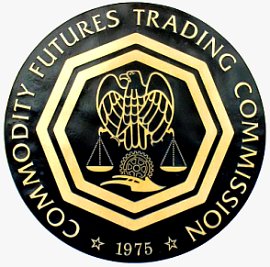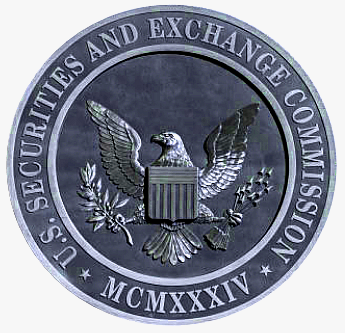Accredited InvestorsAltcoinAnatoli UnitskyAnti-Money Laundering (AML) In CryptoAPIArbitrageArtCoin TokenArticle DirectoryASICAuction Terminology GlossaryBasics of Stock Market InvestingBear MarketBest Crypto Payment Provider In the WorldBitcoinBlockchainBlockchain ConfirmationBlockchain Consensus MechanismBlockchain ForkBlockchain GlossaryBored Ape Yacht ClubBuild a Business That OutperformsBull MarketBuying SkyWay SharesByzantine Fault Tolerance (BFT) ExplainedCasascius CoinCentral Bank Digital Currency (CBDC)Centralized Crypto ExchangeCoinCoinsetCold WalletCollateralCommodity Futures Trading Commission (CFTC)Cross-Chain TechnologyCRUCrypto ExchangeCrypto GlossaryCrypto JokesCrypto Terms to KnowCrypto TickerCryptocurrencyCryptographyCryptojackingCryptounit BlockchainCryptounit GlossaryCryptounit ProgramdApp (Decentralized Application)Dead CoinDecentralized Exchange (DEX)Decentralized Finance (DeFi)Difference Between Bitcoin and EthereumDifferent Ways of Investing MoneyDigital CurrencyDistributed LedgerDo Your Own Research (DYOR)Dollar Cost Averaging (DCA)Dow Jones Industrial Average (DJIA)EncryptionERC-20ERC-721EthereumEvoScentFear Of Missing Out (FOMO)Fear, Uncertainty and Doubt (FUD)Fiat MoneyFNT Fintech CompanyGenesis BlockGlobal Unit PayGlossary of Banking TermsGlossary of Business TermsGlossary of Financial TermsHalvingHODLHot WalletHow Do I Start InvestingHow Rich is Satoshi Nakamoto?How to Create a BlockchainHow to Find Private InvestorsHow to Get Into FintechHow to Program Smart ContractsI Am Thrilled to Be a Part of This Global ProjectInitial Coin Offering (ICO)Initial Public Offering (IPO)Initial Token Offering (ITO)Innovation Basalt TechnologyInnovative Transportation TechnologiesInternational Bank Account Number (IBAN)Investing in Gold Mining StocksInvesting in Gold MiningJagerJoy of Missing Out (JOMO)Know Your Customer (KYC)LedgerLiquidity in CryptocurrencyMaker and Taker Fees in Crypto TradingMarket Capitalization (Market Cap)Meme CoinMetal Credit CardMetaMaskMillenials Now Have Access to Generational WealthMy Best Investment EverNew Digital EvolutionNFT GlossaryOff-Chain TransactionsOn-Chain TransactionsOpen Edition NFTPeer-to-Peer (P2P)Personal Loan GlossaryProbably the Best STO on the MarketProof of Stake (PoS)Real Estate Glossary of TermsReal Estate Investing GlossaryRebase TokenSecurities and Exchange Commission (SEC)Security Token ExchangesSecurity Token Offering (STO)Soulbound Decentralized Identities for Security TokensSoulbound ID Launch by Stobox Proves a SuccessSoulbound TokensStoboxStock Market GlossaryTestimonialsTether Platform and Token (USDT)UnitEx ExchangeUnitsky String TechnologiesUNTBUSDUValidatorWe Started Investing When We Were 25What are Blue Chip NFT?What are Blue Chip Stocks?What are Crypto Assets?What are Crypto Smart Contracts?What are CryptoPunks NFT?What are Digital Assets?What are Digital Collectibles?What are Gas Fees?What are Gas Wars?What are Hashmasks?What are Non Fungible Tokens?What are Non-Sufficient Funds (NSF)?What are Soulbound Tokens (SBT)?What are Stablecoins in Crypto?What are Transactions Per Second (TPS)?What are Utility NFTs?What are Utility Tokens?What Does Burning Crypto Mean?What Does Diamond Hands Mean?What Does Paper Hands Mean?What Does To The Moon Mean?What Does WAGMI Mean?What Happened to Satoshi Nakamoto?What is a 51% Attack?What is a Baby Boomer?What is a Backlink?What is a Banner?What is a Barcode?What is a Bid-Ask Spread in Crypto?What is a Block in Blockchain?What is a Block Reward?What is a Blockchain Address?What is a Blockchain Node?What is a Blockchain Oracle?What is a Blog?What is a Bond?What is a Bot?What is a Broker?What is a Business Accelerator?What is a Cash Cow?What is a Commercial Bank?What is a Commodity?What is a Con?What is a Credit?What is a Credit Limit?What is a Credit Rating?What is a Crypto Airdrop?What is a Crypto Bridge?What is a Crypto Scam?What is a Crypto Token?What is a Crypto Wallet?What is a Crypto Whale?What is a Crypto Winter?What is a Cryptocurrency Public Ledger?What is a Cryptocurrency Roadmap?What is a DAO?What is a Dark Pool?What is a Day Trader?What is a Dead Cat Bounce?What is a Default?What is a Derivative?What is a Digital Credit Card?What is a Fiscal Quarter?What is a Fungible Token?What is a Governance Token?What is a Grace Period?What is a Hard Fork?What is a Hot Wallet?What is a Hybrid Blockchain?What is a Hybrid PoW/PoS?What is a Joint Account?What is a Market Cap?What is a Merkle Tree in Blockchain?What is a Mining Farm?What is a Nonce? What is a PFP NFT?What is a POS System?What is a Prepaid Card?What is a Private Blockchain?What is a Private Key?What is a Public Blockchain?What is a Public Key?What is a Reserve Currency?What is a Ring Signature?What is a Routing Number?What is a Rug Pull in Crypto?What is a Safe Deposit Box?What is a Satoshi?What is a Security Token?What is a Seed Phrase?What is a Shitcoin?What is a Sidechain?What is a Soft Fork?What is a Spot Market?What is a State Bank?What is a SWIFT Code?What is a Tax Identification Number (TIN)?What is a Time Deposit?What is a Transaction Account?What is a Variable Interest Rate?What is a Virtual Assistant (VA)?What is a Virtual Card?What is a Virtual Currency?What is a Visa Card?What is a Whitelist in Crypto?What is a Whitepaper?What is Accounts Payable (AP)?What is AMA in Crypto?What is Amortization?What is an Accrual?What is an ACH Transfer?What is an Actuary?What is an Addendum?What is an Algorithm?What is an Angel Investor?What is an Annuity?What is an Asset?What is an ATM?What is an Atomic Swap?What is an Audit?What is an Avatar?What is an EIN?What is an Embargo?What is an Entrepreneur?What is an IDO (Initial Dex Offering)?What is an Interest Rate?What is an Internet cookie?What is an Investment Bank?What is an NFT Drop?What is an NFT Floor Price?What is an Ommer Block?What is an Orphan Block?What is an Outstanding Check?What is an Overdraft?What is Artificial Intelligence (AI)?What is B2B (Business-to-Business)?What is B2G (Business-to-Government)?What is Bartering?What is Bitcoin Dominance?What is Bitcoin Pizza Day?What is Blockchain Immutability?What is Blockchain Used For?What is BRICS?What is Business-to-Consumer (B2C)?What is C2C (Customer to Customer)?What is Capitalism?What is Catfishing?What is CFD Trading?What is Check Kiting?What is Cloud Mining?What is Communism?What is Content Marketing?What is Decentralization in Blockchain?What is DeFi in Crypto?What is Delisting?What is Depreciation?What is Digital Marketing?What is Diversification?What is Double Spending?What is Dumb Money?What is Dumping?What is Earnings Per Share (EPS)?What is Economics?What is Email Marketing?What is Equity?What is Etherscan?What is Fintech?What is Foreign currency?What is Forex?What is Fundamental Analysis (FA)?What is GameFi?What is Generative Art NFT?What is Gwei?What is Hard Currency?What is Hash Rate?What is Hashing in Blockchain?What is Inflation?What is Initial Game Offering (IGO)?What is Interest?What is Interest Income?What is Mainnet?What is Mastercard?What is Metaverse in Crypto?What is Mining in Cryptocurrency?What is Minting NFT?What is Mobile Banking?What is Money Laundering?What is NFT Alpha?What is NFT Metadata?What is NFT Rarity?What is NGMI Meaning?What is Nominal Interest Rate?What is Online Banking?What is Open-End Credit?What is OpenSea NFT Marketplace?What is Personal Identification Number (PIN)?What is Play-to-Earn?What is Polygon?What is Proof of Authority (PoA)?What is Proof of Work (PoW)?What is Public Key Cryptography?What is Pump and Dump?What is Quantum Computing?What is Refinancing?What is Retail Banking?What is Ripple?What is Sharding?What is Slippage in Crypto?What is Smart Money?What is Solvency?What is Soulbound ID?What is SSL?What is Staking in Cryptocurrency?What is Technical Analysis (TA)?What is Testnet?What is the Ask Price?What is the Better Business Bureau (BBB)?What is the Bid Price?What is the Dark Web?What is the InterPlanetary File System (IPFS)?What is the Gold Standard?What is the Lightning Network?What is the Prime Rate?What is the Sandbox?What is the Secondary Market?What is the World Bank?What is Tier 1 Capital?What is Tokenomics?What is TRC-20?What is Universal Banking?What is Unspent Transaction Output (UTXO)?What is Usury?What is Volatility in Crypto?What is Wash Trading?What is Web3?What is Whisper?What is XRP?What is Zero-Knowledge Proof (ZKP)?Who is Beeple?Who is Satoshi Nakamoto?Who is Vitalik Buterin?Why Tokenization is a Safe HavenWhy You Should Try Your Hand at Trading
What is Wash Trading?
- Home
- Crypto Glossary
- What is Wash Trading?
Market participants use multiple tactics to manipulate prices in their favor.

Wash trading is one of the most frequently employed forms of trading. Some traders and crypto firms may engage in this fraudulent practice to inflate prices, deceive investors, and create the illusion of higher trading volume.
What is Wash Trading?
Wash trading, a primitive price manipulation strategy, involves a trade operation where the buyer and seller are the same entity, creating an illusion that the asset is more popular than it actually is. This attracts genuine investors who later trade the artificially hyped asset at a higher price. In the traditional markets, such practice is banned, but in the crypto market, it is still prevalent.
Wash traders execute the scheme by buying the same asset from themselves, switching money between two or more wallets owned by them, and repeating the process multiple times. This creates a strong activity that attracts other investors, boosting the asset's price. The traders then dump their loads of the asset for a colossal price and walk away, keeping their funds. The wallets used for wash trading can even belong to a single person, with the traders only spending money on transaction fees. However, this trade type is contentious and sucks wealth from fair investors.
Besides manipulating prices, wash trading is also used to exaggerate trading volume rates of crypto exchanges, attracting more traders and earning higher trading fees. Some exchanges offer privileges for high-volume traders, encouraging users to do wash trading to get these perks.
The Interplay Between Wash Trading and High-Frequency Trading
The emergence of high-frequency trading, which utilizes lightning-fast computers and internet connections to execute tens of thousands of trades per second, coincided with the resurgence of wash trading in 2013.
In 2012, Bart Chilton, then-Commissioner of the Commodity Futures Trading Commission, expressed concerns about potential violations of wash trading laws in the high-frequency trading industry. He noted that the advanced technology used by firms in this industry could make it easy to engage in wash trading without detection.
The Securities and Exchange Commission (SEC) took action in 2014 when it charged Wedbush Securities with failing to maintain direct and exclusive control over trading platform settings used by its customers. This failure enabled some of its high-frequency traders to engage in prohibited and manipulative behavior, including wash trading.
The case of Wedbush Securities highlights the need for effective oversight and regulation of both high-frequency trading and wash trading. While high-frequency trading can provide market liquidity and efficiency, it can also create an environment ripe for market manipulation. Likewise, wash trading can distort market indicators and harm investor confidence.
Regulators have taken steps to address these concerns. The SEC has proposed rules to improve oversight of high-frequency trading and reduce the risk of market manipulation. The Commodity Futures Trading Commission has also implemented measures to detect and prevent wash trading in the futures market.
The Threat of Wash Trading in Cryptocurrencies and NFT Markets
Cryptocurrencies have become a comfort zone for modern wash traders, opening a new season for price manipulation. Unlike traditional markets, cryptocurrencies offer ways to obscure one's identity, and the legal uncertainty over wash trading in the crypto market makes it challenging to prosecute bad actors.
The decentralized nature of the blockchain industry and the anonymity of some platforms make it harder to identify wash traders in the crypto market. The lack of clear regulations also complicates the prosecution of wash traders, as it is not always clear which authorities are responsible for controlling the crypto markets and related crimes.
NFT markets are particularly vulnerable to wash trading as many NFTs lack trading volume. Wash traders can conduct a series of back-and-forth trades of an NFT to create an illusion of trading activity, tricking rookie NFT hunters into thinking it is a worthy investment. However, once purchased, investors may find that no one wants to buy the NFT, as all previous buyers were actually the same person or a group of people.
The Bottom Line
Wash trading is an illegal activity where a trader buys and sells the same security, either within a short period or on separate exchanges, to inflate the trading volume or price of that security. Although it can occur across various industries and assets, wash trading has become a significant concern in the cryptocurrency and high-frequency trading spaces.
Related Articles

What is Delisting?
Other exchanges see wash trading as unsustainable and unhealthy and may delist a coin even if generating large volumes and trading fees due to wash trading.

Commodity Futures Trading Commission (CFTC)
The CEA prohibits fraud, manipulation, and other abusive practices in the commodities markets, and gives the CFTC broad authority to...

Securities and Exchange Commission (SEC)
The SEC is a government agency responsible for regulating and overseeing the securities industry in the United States. The SEC was...
- Home
- Crypto Glossary
- What is Wash Trading?